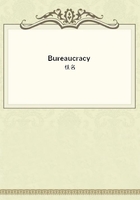
第79章 THE RESIGNATION(4)
Poiret. "Will any one tell me the meaning of all that is happening here to-day?"Bixiou. "Do you really want to know? Then listen. The antechamber of the administration is henceforth a chamber, the court is a boudoir, the best way to get in is through the cellar, and the bed is more than ever a cross-cut."Poiret. "Monsieur Bixiou, may I entreat you, explain?"Bixiou. "I'll paraphrase my opinion. To be anything at all you must begin by being everything. It is quite certain that a reform of this service is needed; for on my word of honor, the State robs the poor officials as much as the officials rob the State in the matter of hours. But why is it that we idle as we do? because they pay us too little; and the reason of that is we are too many for the work, and your late chief, the virtuous Rabourdin, saw all this plainly. That great administrator,--for he was that, gentlemen,--saw what the thing is coming to, the thing that these idiots call the 'working of our admirable institutions.' The chamber will want before long to administrate, and the administrators will want to legislate. The government will try to administrate and the administrators will want to govern, and so it will go on. Laws will come to be mere regulations, and ordinances will be thought laws. God made this epoch of the world for those who like to laugh. I live in a state of jovial admiration of the spectacle which the greatest joker of modern times, Louis XVIII., bequeathed to us" [general stupefaction]. "Gentlemen, if France, the country with the best civil service in Europe, is managed thus, what do you suppose the other nations are like? Poor unhappy nations! I ask myself how they can possibly get along without two Chambers, without the liberty of the press, without reports, without circulars even, without an army of clerks? Dear, dear, how do you suppose they have armies and navies? how can they exist at all without political discussions? Can they even be called nations, or governments? It is said (mere traveller's tales) that these strange peoples claim to have a policy, to wield a certain influence; but that's absurd! how can they when they haven't 'progress' or 'new lights'? They can't stir up ideas, they haven't an independent forum;they are still in the twilight of barbarism. There are no people in the world but the French people who have ideas. Can you understand, Monsieur Poiret," [Poiret jumped as if he had been shot] "how a nation can do without heads of divisions, general-secretaries and directors, and all this splendid array of officials, the glory of France and of the Emperor Napoleon,--who had his own good reasons for creating a myriad of offices? I don't see how those nations have the audacity to live at all. There's Austria, which has less than a hundred clerks in her war ministry, while the salaries and pensions of ours amount to a third of our whole budget, a thing that was unheard of before the Revolution. I sum up all I've been saying in one single remark, namely, that the Academy of Inscriptions and Belles-lettres, which seems to have very little to do, had better offer a prize for the ablest answer to the following question: Which is the best organized State; the one that does many things with few officials, or the one that does next to nothing with an army of them?"Poiret. "Is that your last word?"
Bixiou. "Yes, sir! whether English, French, German or Italian,--I let you off the other languages."Poiret [lifting his hands to heaven]. "Gracious goodness! and they call you a witty man!"Bixiou. "Haven't you understood me yet?"
Phellion. "Your last observation was full of excellent sense."Bixiou. "Just as full as the budget itself, and like the budget again, as complicated as it looks simple; and I set it as a warning, a beacon, at the edge of this hole, this gulf, this volcano, called, in the language of the 'Constitutionel,' 'the political horizon.'"Poiret. "I should much prefer a comprehensible explanation."Bixiou. "Hurrah for Rabourdin! there's my explanation; that's my opinion. Are you satisfied?"Colleville [gravely]. "Monsieur Rabourdin had but one defect."Poiret. "What was it?"
Colleville. "That of being a statesman instead of a subordinate official."Phellion [standing before Bixiou]. "Monsieur! why did you, who understand Monsieur Rabourdin so well, why did you make that inf--that odi--that hideous caricature?"Bixiou. "Do you forget our bet? don't you know I was backing the devil's game, and that your bureau owes me a dinner at the Rocher de Cancale?"Poiret [much put-out]. "Then it is a settled thing that I am to leave this government office without ever understanding a sentence, or a single word uttered by Monsieur Bixiou."Bixiou. "It is your own fault; ask these gentlemen. Gentlemen, have you understood the meaning of my observations? and were those observations just, and brilliant?"All. "Alas, yes!"
Minard. "And the proof is that I shall send in my resignation. I shall plunge into industrial avocations."Bixiou. "What! have you managed to invent a mechanical corset, or a baby's bottle, or a fire engine, or chimneys that consume no fuel, or ovens which cook cutlets with three sheets of paper?"Minard [departing.] "Adieu, I shall keep my secret."Bixiou. "Well, young Poiret junior, you see,--all these gentlemen understand me."Poiret [crest-fallen]. "Monsieur Bixiou, would you do me the honor to come down for once to my level and speak in a language I can understand?"Bixiou [winking at the rest]. "Willingly." [Takes Poiret by the button of his frock-coat.] "Before you leave this office forever perhaps you would be glad to know what you are--"Poiret [quickly]. "An honest man, monsieur."
Bixiou [shrugging his shoulders]. "--to be able to define, explain, and analyze precisely what a government clerk is? Do you know what he is?"Poiret. "I think I do."
Bixiou [twisting the button]. "I doubt it."